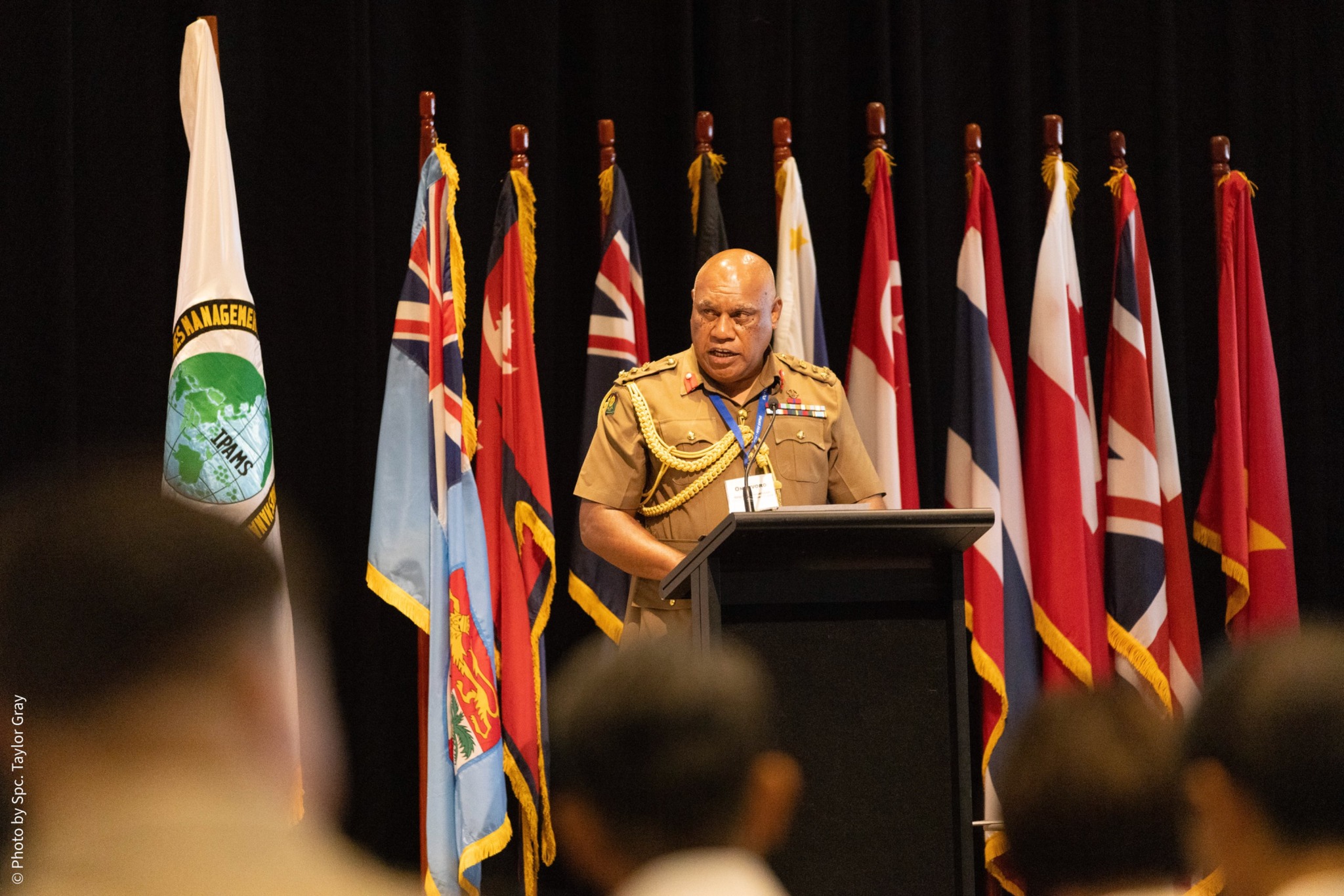The Indo-Pacific Armies Management Seminar (IPAMS) serves as a platform for leaders to exchange ideas, share best practices and forge stronger partnerships.
This was highlighted by Fiji Land Force Commander Brigadier-General Onisivoro Covunisaqa at the 48th annual IPAMS seminar held in Nadi on Tuesday.
Fiji last hosted the conference in 2006.
“In 2006, we were not focused on the collective approach to threats in the Pacific,” Brig-Gen Covunisaqa said.
“But we are moving towards that now. I’m glad USARPAC has come with us, bringing partners, nations and our forces together to discuss common things during this conference.”
US Army Pacific Commander General Charles Flynn echoed similar sentiments.
“I think the structure that we have in the forums to discuss matters like humanitarian assistance and disaster relief, and the role land forces play in those particular crises, where countries are challenged and people are struggling, is vitally important,” General Flynn said.
The theme for this year’s conference is Joint & Combined Operations in the Indo-Pacific Region.
General Flynn referred to the theme as a “unity of action,” involving synergistic applications of all partner forces.
“What makes this such an achievable goal for this group of land forces, we can achieve unity of action because unlike our adversaries, we share a vision, a common vision, a vision of a free and open Indo-Pacific,” he said.
“I have seen at least in the last decade, a substantial increase in all countries wanting to conduct more multilateral activities to bring professional military and in this case, army forces together to discuss common ways that we can overcome challenges.”
IPAMS is the region’s longest and largest running multinational military seminar promoting security, peace and co-operation in the Indo-Pacific region.
Participants at this year’s seminar include Australia, Cambodia, Canada, Chile, Fiji, France, Indonesia, Japan, Korea, Malaysia, Maldives, Mongolia, Nepal, New Zealand and Papua New Guinea.
The conference ended yesterday.



